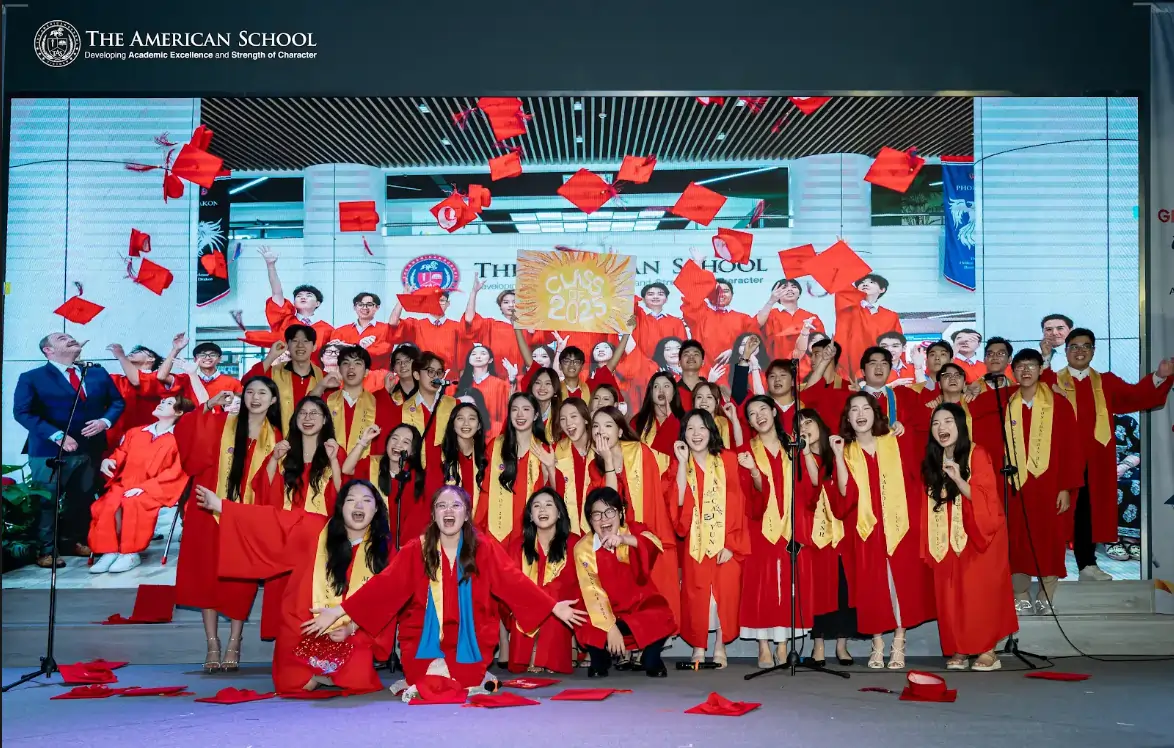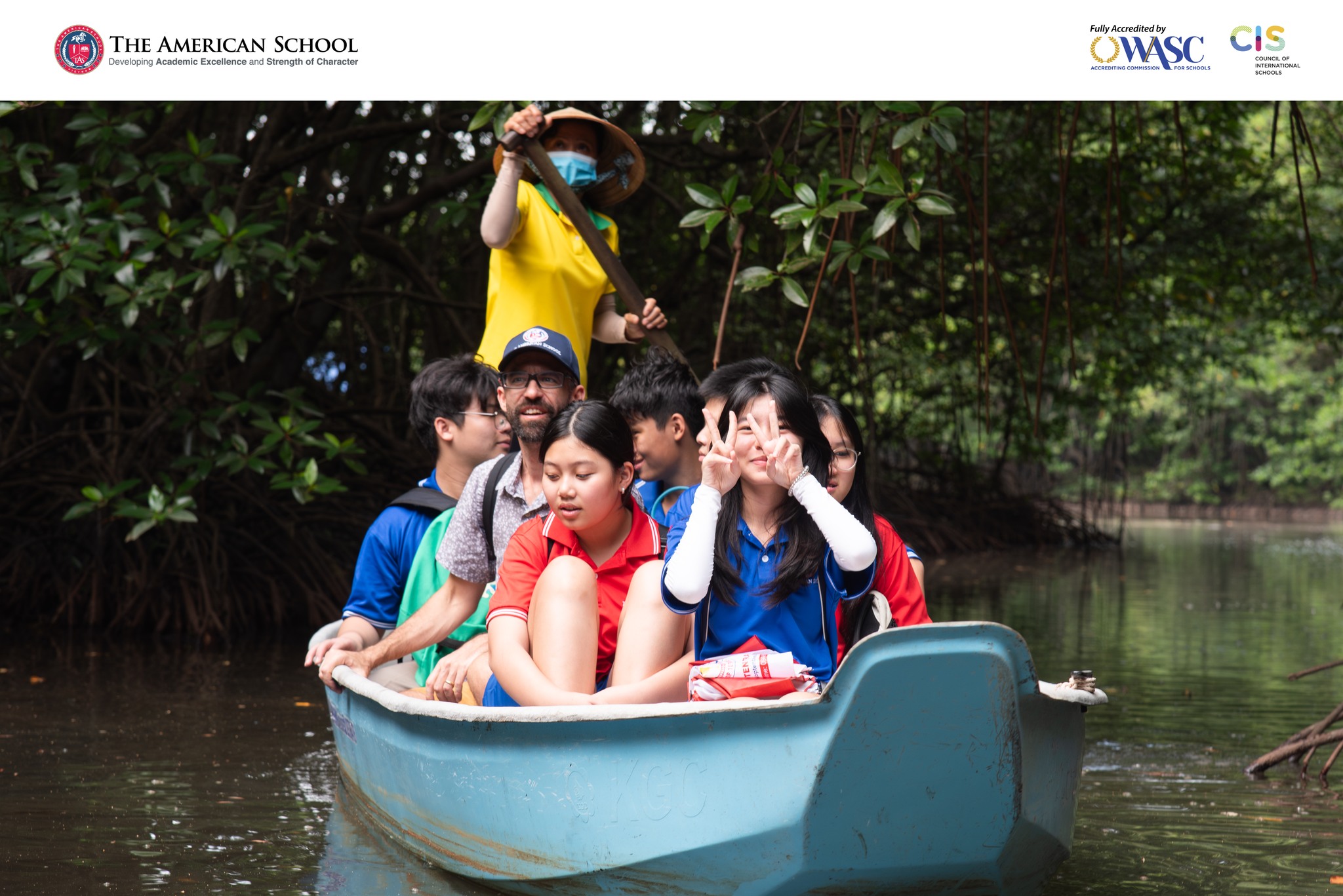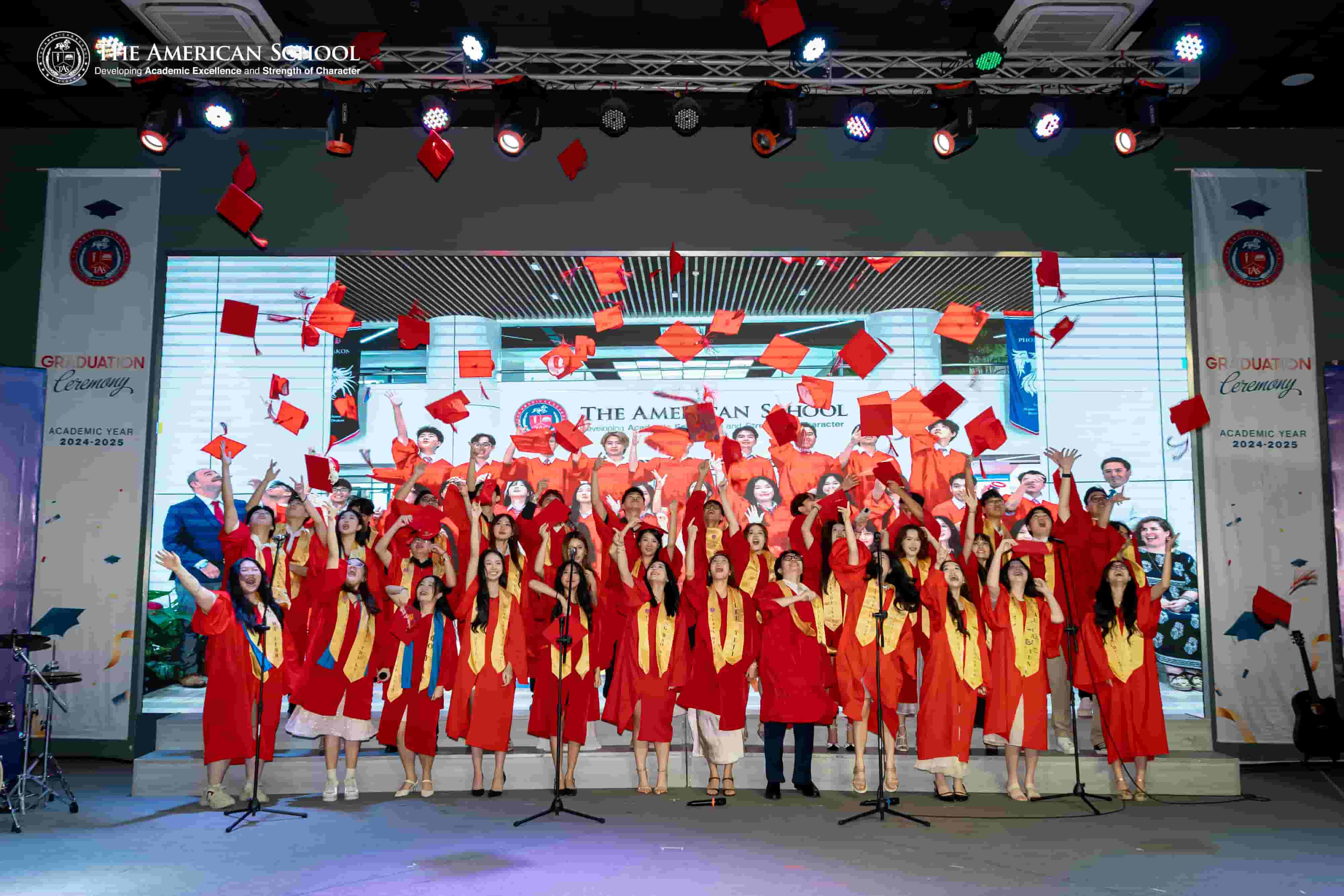Inspiring Academic Excellence
in a Dynamic American Educational Program

Empowering Students to Thrive in a Supportive Environment
The American School fosters the growth of the whole child in a multicultural environment aligned with American educational models.
Our Vision
To be a passionate and internationally inspired organization that is dynamic and evolving, where all members are supported in realizing their unique potential and all students may pursue endeavors beyond the classroom, while consolidating its position as an institution recognized both regionally and internationally as a school of academic excellence.
Our Mission
The American School educates the whole child in a multicultural environment aligned with educational models in support of individualized pathways. We nurture individual abilities to produce creative confident, and critical thinkers who are self-aware, socially conscious, and prepared for an ever-changing society.

Celebrating Our Academic Achievements
95%
30
15
1000+
Our students consistently excel academically, achieving outstanding results on standardized tests and earning acceptance into prestigious colleges. We take pride in fostering a culture of academic excellence.




Ready to Join Our Community?
Discover how easy it is to become part of The American School family! Learn more about our transparent fee structure and streamlined admission process.
Explore Our Exceptional Facilities
The new TAS campus, completed in 2020, offers outstanding facilities for students from Pre-Nursery to Grade 12.
Designed to support significant growth, the campus has a capacity of over 2,000 students, eliminating the need for major future construction projects.




.jpg)
Start Your Journey with Us
At The American School, we believe in providing a nurturing and supportive environment where every student can thrive.
Explore the TAS Life
Book a school tour with us!
Be the first to know about exciting school updates, events, and achievements.






































.jpg)

.jpg)
%20(1).webp)

%20(1).webp)
.webp)
.webp)
.webp)
.webp)
.webp)
.webp)
.webp)
.webp)
.webp)
.webp)
%20quan%20trong%20voi%20tre%20mam%20non%20nhu%20the%20nao%20(3).webp)
.webp)
.webp)
.webp)
.webp)
.webp)






.webp)
.webp)
.webp)

-min.jpg)




.avif)